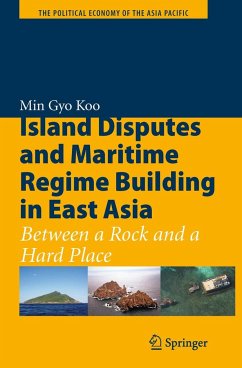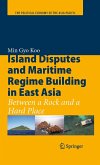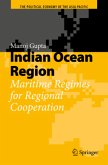This book approaches Asian maritime disputes from an interdisciplinary perspective. It explores the three most prominent island disputes in East Asia, and provides a road map for successful management and development of the world's most dynamic sea areas.
islands has emotional content far beyond any material significance because giving way on the island issue to Japan would be considered as once again compromising the sovereignty over the whole Korean peninsula. For Japan, the Dokdo issue may lack the same degree of strategic and economic values and emotional appeal as the other two territorial disputes that Japan has had with Russia and the two Chinas - namely the Northern Territories/Southern Kurile Islands and the Senkaku Islands, respectively. Nevertheless, fishing resources and the maritime boundary issues became highly salient with the introduction of UNCLOS. Also, the legal, political, and economic issues surrounding Dokdo are all intertwined with Japan's other territorial disputes to the extent that concessions of sovereignty on any of these island disputes could jeopardize claims or negotiations concerning the rest. South Korea and Japan have forged a deeper diplomatic and economic partn- ship over the past decade. A new spirit of partnership after the landmark joint declaration of 1998 culminated in the successful co-hosting of the World Cup 2002. At the end of 2003 the two neighbors began to negotiate an FTA to further strengthen their already close economic ties. South Korea's decades-long embargo on Japanese cultural products has now been lifted, while a number of South Korean pop stars are currently sweeping across Japan, creating the so-called "Korean Wave" fever. A pragmatic calculation of national interests would thus suggest cooperative behavior.
islands has emotional content far beyond any material significance because giving way on the island issue to Japan would be considered as once again compromising the sovereignty over the whole Korean peninsula. For Japan, the Dokdo issue may lack the same degree of strategic and economic values and emotional appeal as the other two territorial disputes that Japan has had with Russia and the two Chinas - namely the Northern Territories/Southern Kurile Islands and the Senkaku Islands, respectively. Nevertheless, fishing resources and the maritime boundary issues became highly salient with the introduction of UNCLOS. Also, the legal, political, and economic issues surrounding Dokdo are all intertwined with Japan's other territorial disputes to the extent that concessions of sovereignty on any of these island disputes could jeopardize claims or negotiations concerning the rest. South Korea and Japan have forged a deeper diplomatic and economic partn- ship over the past decade. A new spirit of partnership after the landmark joint declaration of 1998 culminated in the successful co-hosting of the World Cup 2002. At the end of 2003 the two neighbors began to negotiate an FTA to further strengthen their already close economic ties. South Korea's decades-long embargo on Japanese cultural products has now been lifted, while a number of South Korean pop stars are currently sweeping across Japan, creating the so-called "Korean Wave" fever. A pragmatic calculation of national interests would thus suggest cooperative behavior.








